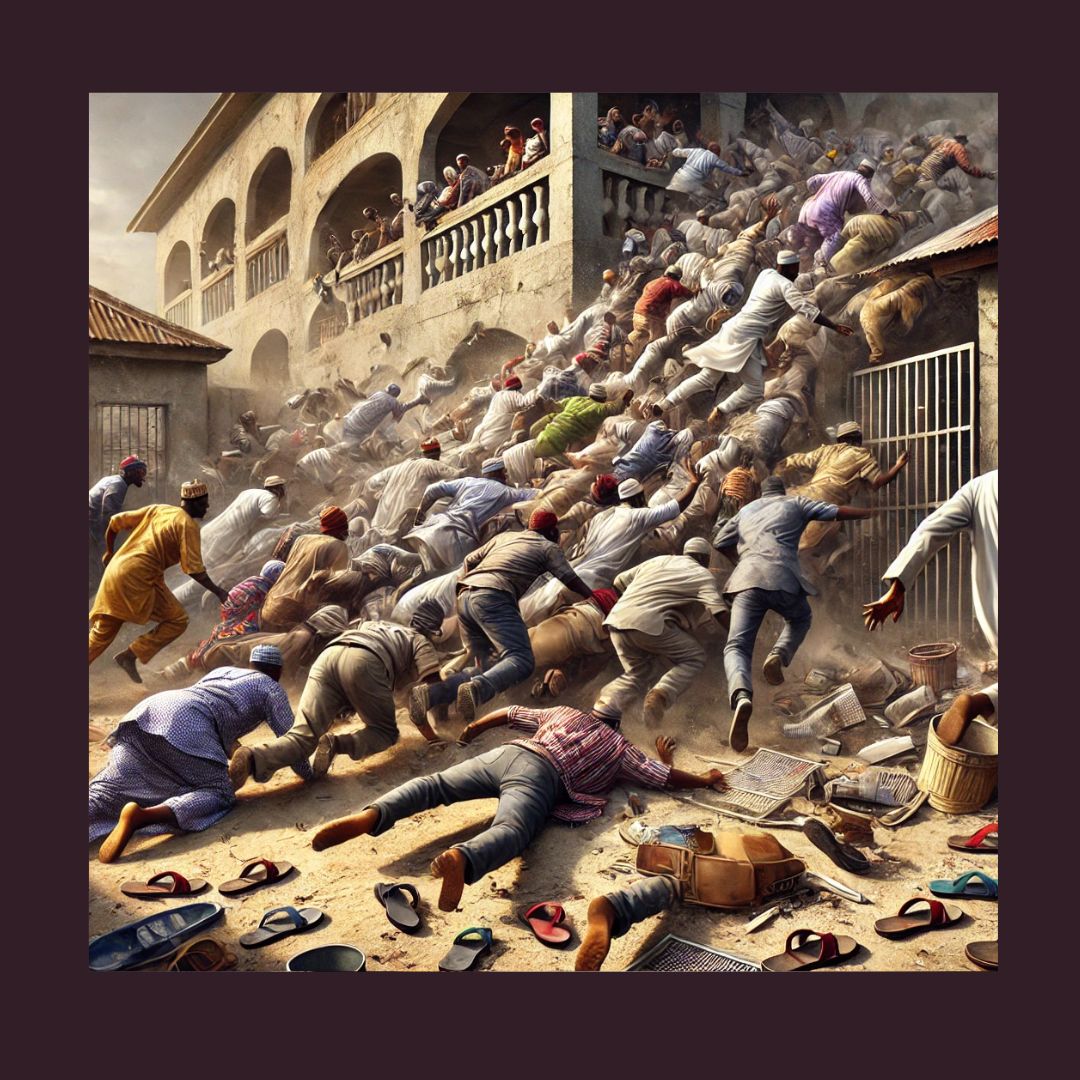At least 17 people died in a stampede during a rice distribution event in Okija, Anambra, on Saturday. Meanwhile, a separate stampede in Abuja’s Holy Trinity Catholic Church killed 10 people as palliatives were distributed. The tragic incidents highlight the growing desperation caused by Nigeria’s rising economic hardship.
In Okija, Anambra State, thousands had gathered for the annual rice distribution organized by Obijackson Foundation. Most of the victims were women and youths who had arrived as early as 5 a.m. They eagerly waited for the event to begin at dawn.
As the distribution began, the crowd surged uncontrollably. Eyewitnesses said the panic escalated quickly, leading to the deadly crush. The bodies were rushed to Our Lady of Lourdes Hospital in Ihiala, while the injured received emergency care. Videos from the scene showed a chaotic environment, with people struggling to escape the crowd.
In Abuja, a similar tragedy occurred at the Holy Trinity Catholic Church. Over 3,000 residents from Mpape and nearby settlements had gathered to receive palliatives. A stampede broke out between 7 a.m. and 8 a.m., leaving 10 dead and many others injured.
Witnesses described a scene of panic, with people scrambling for food aid. Most of the deceased were reportedly children. Security forces, including police, military, and DSS officers, were deployed to control the situation. The distribution event, aimed at helping struggling families, was suspended immediately.
Mediaolord.ng reports that the incident mirrors a similar tragedy in Ibadan earlier this month. At least 35 children died in a stampede during a funfair, again linked to food and gift distribution. Experts believe that such events are becoming more frequent due to rising economic hardship.
Rising economic hardship drives desperation
The stampedes in Anambra, Abuja, and Ibadan reflect the growing desperation caused by rising economic hardship in Nigeria. With inflation soaring, food prices have become unaffordable for many Nigerians. A cup of rice, a staple food, is now considered a luxury for some families.
Sociologists and economists argue that the rising hunger in the country is a direct result of economic policies that have failed to address poverty. Dr. Grace Okafor, a sociologist, stated, “People are desperate. Hunger is a powerful force that drives individuals to extreme actions.”
An Economist, Michael Adebayo, highlighted the economic disparity in Nigeria, where many face difficulty accessing basic necessities. “The social safety nets that should protect the most vulnerable have been insufficient. These events are symptomatic of deeper economic issues,” he said.
Experts in crowd control have raised alarms about the lack of proper planning for such events. Mr. Ita Benson, a safety expert, criticized the organizers for inadequate crowd management. “Without effective crowd control measures, large gatherings for food distribution will continue to lead to chaos,” he said.
In Abuja, despite efforts by church security personnel to manage the crowd, people ignored instructions to wait in an orderly fashion. The church had expected thousands, but the turnout exceeded its capacity. Mr Benson stressed that the responsibility for these tragedies lies with both the organizers and local authorities.
Government responds to tragic incidents
In response to the incidents, President Bola Tinubu canceled all official events on Saturday. He expressed his condolences for the victims in both Abuja and Anambra. “These tragedies are a result of failures in crowd management. Authorities must enforce stricter safety measures,” he said in a statement.
Tinubu also called on state and local governments to improve safety protocols for events involving large crowds. “These accidents are avoidable. Organizers must adhere to safety guidelines to protect attendees,” he added.
Security forces were deployed quickly to control the situation in both Abuja and Anambra. In Abuja, police, military, and DSS officers managed to restore order after the stampede. However, the damage was already done, with lives lost and many others injured.
A doctor treating the survivors of the Abuja stampede noted the severity of the trauma. “The physical injuries are bad, but the emotional scars will take longer to heal,” he said. Some survivors, like Amarachi Nwosu, who almost lost her son in the chaos, will never forget the terrifying experience.
The role of charity organizations
Despite the tragic outcome, analysts say the charitable intentions behind the events cannot be ignored. Both the Obijackson Foundation and the Catholic Church had good intentions in distributing aid to vulnerable populations. However, safety experts argue that more attention must be paid to crowd management when organizing such events.
Mrs. Juliet Onwuemelie, the coordinator of the St. Vincent de Paul Charity Society, was detained for questioning. She explained that the church had planned to distribute food at multiple parishes simultaneously. But the overwhelming turnout led to the stampede.

Leave feedback about this